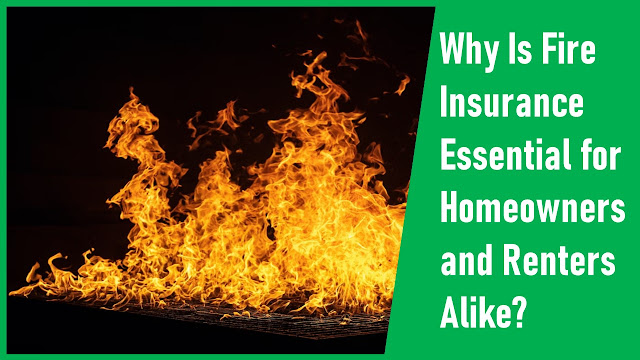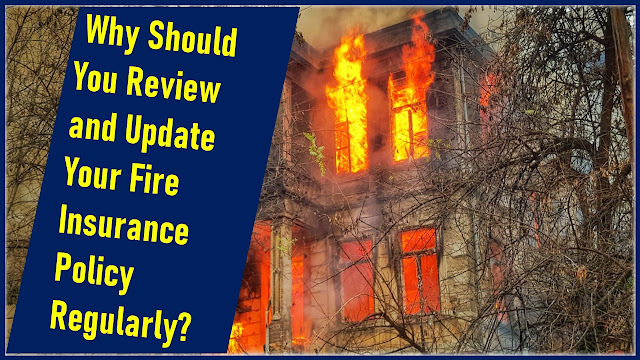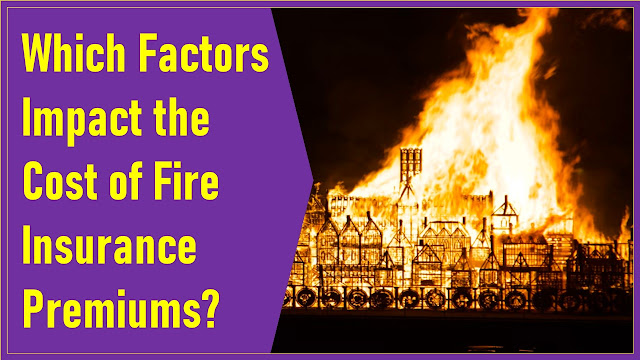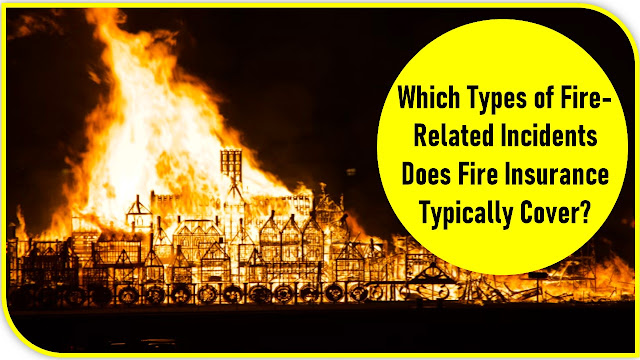Why Is Fire Insurance Essential for Homeowners and Renters Alike?

Introduction.
In this article, I’ll delve into a critical aspect of safeguarding your home and peace of mind: fire insurance. Whether you’re a homeowner or a renter, the devastating consequences of a fire can strike unexpectedly, turning your life upside down in an instant. Fire insurance serves as a financial lifeline, protecting against the destructive forces of flames, smoke, and ash. In the following paragraphs, we’ll explore the fundamental reasons why fire insurance is indispensable for both homeowners and renters, shedding light on the invaluable safety net it offers in the face of this ever-present threat.
Imagine a scenario where your cherished possessions, sanctuary, or dwelling place falls victim to the ravages of a fire. The aftermath can be emotionally and financially crippling, leaving you to grapple with the daunting task of rebuilding your life from the ashes. However, with fire insurance in place, you gain the assurance that should disaster strike, you’ll have the necessary financial support to recover and rebuild. Whether you own your home or rent, the principles and benefits of fire insurance transcend tenure, providing a vital layer of protection that can make all the difference when the flames threaten to consume everything you hold dear. In the following sections, we’ll explore the specifics of fire insurance coverage and why it should be a non-negotiable component of your housing plan.
- Financial Protection Against Property Loss
- Safeguarding Personal Belongings
- Liability Coverage for Legal Protection
- Temporary Housing and Living Expenses
- Mitigating Risks and Promoting Peace of Mind
- Legal and Mortgage Requirements for Homeowners
Financial Protection Against Property Loss.
Fire insurance provides crucial financial protection for homeowners and renters by covering property loss resulting from fires. In the unfortunate event of a fire damaging or destroying your home, this insurance ensures that you receive compensation to repair or rebuild your property. Without fire insurance, the financial burden of rebuilding can be overwhelming, potentially leading to significant debt or even bankruptcy.
Homeowners benefit from fire insurance as it helps safeguard their most substantial investment—their property. It is often a requirement when obtaining a mortgage, as lenders want assurance that their investment is protected. For renters, while they may not own the building, they still possess personal property within it. Fire insurance helps renters recover the value of their belongings, such as furniture, electronics, and clothing, which can be expensive to replace out of pocket. In both cases, this coverage not only offers peace of mind but also ensures that individuals and families can recover and rebuild their lives after a devastating fire.
Safeguarding Personal Belongings.
Beyond protecting the structure itself, fire insurance is essential for safeguarding personal belongings. Homeowners and renters alike accumulate a lifetime of possessions, many of which hold sentimental or monetary value. In the aftermath of a fire, these items can be lost or severely damaged, leading to emotional distress and financial strain. Fire insurance steps in to mitigate this loss by offering coverage for the replacement or repair of personal property.
For homeowners, this means that not only the house but also the contents within it, such as furniture, appliances, and personal items, are protected. Renters, who might not be responsible for the structural integrity of the building, still need protection for their possessions. Fire insurance allows them to recover the value of their belongings, ensuring that they can rebuild their lives more swiftly. Without this coverage, the burden of replacing everything from clothing to electronics can be daunting and often unmanageable.
Liability Coverage for Legal Protection.
Fire insurance not only shields homeowners and renters from property loss but also provides liability coverage for legal protection. In the aftermath of a fire, there can be instances where you might be held legally responsible for damage to neighboring properties or injuries sustained by others due to the fire’s origin from your home or rental property. Without adequate liability coverage, individuals could find themselves facing substantial legal costs and potential financial ruin.
Homeowners and renters alike benefit from the liability protection that fire insurance offers. This coverage typically includes legal representation and coverage of legal fees if someone sues you for fire-related damages or injuries. It can also extend to third-party property damage, ensuring that you are not left personally liable for the expenses. This legal safeguard is not just a financial necessity; it also provides peace of mind in knowing that you have the means to defend yourself against unexpected legal challenges arising from a fire incident.
Temporary Housing and Living Expenses.
Fire insurance offers a critical lifeline in times of crisis by covering temporary housing and living expenses. When a home becomes uninhabitable due to fire damage, homeowners and renters may find themselves displaced, with the immediate need for alternative accommodations. These expenses can add up quickly and strain one’s budget, especially when the fire has already caused significant financial hardship.
For homeowners, fire insurance typically includes coverage for temporary housing, allowing them to secure a place to live while their home is being repaired or rebuilt. Renters also benefit from this aspect of fire insurance, as it can cover the cost of temporary accommodation until they can find a new place to live. Additionally, policies often include coverage for increased living expenses, such as higher food costs and transportation expenses, incurred as a result of the displacement. This support ensures that individuals and families can maintain a reasonable standard of living during the challenging period of rebuilding, without being burdened by excessive out-of-pocket expenses.
Mitigating Risks and Promoting Peace of Mind.
Beyond the tangible benefits, fire insurance plays a crucial role in mitigating risks and promoting peace of mind for both homeowners and renters. Fires can be sudden, unpredictable disasters, and the financial consequences of not having insurance can be devastating. Knowing that you have comprehensive fire insurance coverage in place provides a sense of security, allowing you to focus on other aspects of your life without constantly worrying about the potential financial fallout of a fire incident.
Furthermore, fire insurance promotes responsible homeownership and tenancy. It encourages individuals to take steps to mitigate fire risks by maintaining fire safety measures in their homes or rental properties. This includes installing smoke detectors, and fire extinguishers, and adhering to local building codes. By doing so, homeowners and renters not only protect themselves but also reduce the risk of fire-related incidents, which can lead to lower insurance premiums over time. In essence, fire insurance serves as both a financial safety net and a motivator for proactive risk reduction, ensuring that homeowners and renters alike can enjoy greater peace of mind in their everyday lives.
Legal and Mortgage Requirements for Homeowners.
Fire insurance is more than just a safety net; it’s often a legal and mortgage requirement for homeowners. Lenders, when providing a mortgage, typically require homeowners to secure adequate fire insurance as part of the loan agreement. This requirement stems from the lender’s vested interest in protecting their investment, which is your home. The logic is simple: if your home is damaged or destroyed by fire and you lack insurance, you may not have the financial means to rebuild it, potentially causing the lender to suffer a loss. To mitigate this risk, lenders insist on fire insurance coverage to ensure that the property can be repaired or reconstructed in case of a fire-related disaster.
Moreover, local laws and building codes in many regions necessitate homeowners to have fire insurance. These regulations are in place to safeguard communities and promote responsible homeownership. Compliance with these legal requirements is not only essential for the protection of the homeowner’s investment but also crucial for maintaining a sense of security within the neighborhood. In essence, fire insurance is not merely a discretionary expense but an obligation that ensures legal compliance and mortgage agreement fulfillment. It underscores the interconnectedness of homeowners’ responsibilities, financial institutions’ interests, and broader community welfare, emphasizing its pivotal role in the homeownership landscape.
Conclusion.
In conclusion, I hope this article has shed light on the undeniable importance of fire insurance for both homeowners and renters. Beyond being a financial safeguard against property loss and personal belongings damage, fire insurance offers critical legal protection, ensuring that individuals are not left vulnerable to costly lawsuits in the wake of a fire-related incident. It also provides a lifeline for temporary housing and living expenses, allowing affected individuals to rebuild their lives without bearing the full financial burden of displacement.
Moreover, fire insurance serves as a proactive measure, encouraging responsible homeownership and risk mitigation. It not only meets legal and mortgage requirements but also fosters a sense of community safety by ensuring that every member takes steps to minimize fire risks. Ultimately, fire insurance is not just a policy; it’s a powerful tool that promotes peace of mind, financial security, and the ability to rise from the ashes after one of life’s most devastating disasters, offering a crucial safety net for homeowners and renters alike







